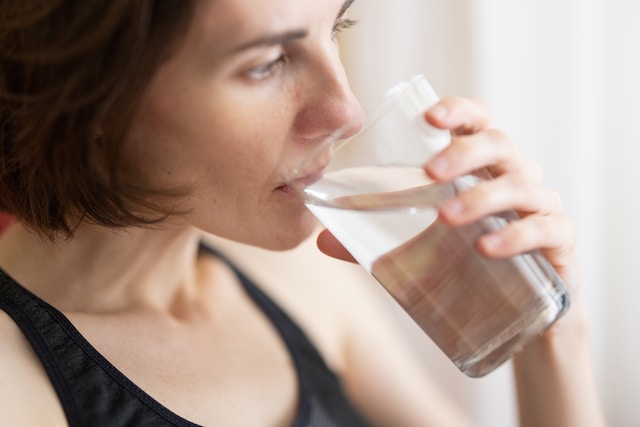Soft water can not only benefit your health but also lessen the strain on your household and wallet. Hard water can damage skin health and cause havoc in your home by needing cleaning supplies or repair fees to make repairs necessary.

Some individuals worry that soft water contains sodium, but that isn’t necessarily true; soft water actually provides greater safety due to an ion exchange process that removes harmful calcium and magnesium ions from hard water sources.
Afterward, check out this blog from PlumbTech if you’d like to learn more about drinking softened water.
1. It is healthier
Soft water offers many advantages for consumers: it cleans better, is gentler on skin and hair, doesn’t leave soap streaks or mineral stains behind, reduces resource-intensive solutions like purchasing an additional water line to bypass your softener, and can save you money spent on purchasing additional cleaning products to remove mineral buildup.
Some worry that drinking softened water could harm their health due to its sodium content.
While the ion exchange process causes resin beads to release some sodium into the water, its levels do not approach levels that would harm healthy adults; one gallon of softened water only contains approximately 37 milligrams or less than what one slice of bread contains – far below what would be recommended daily as part of an adult’s recommended sodium intake.
2. It is safer
People often think softened water contains too much sodium, but it’s important to remember that softening does not involve adding additional salt; instead, it merely removes calcium and magnesium minerals found naturally in water from your drinking supply so you can still benefit from their presence through food sources such as supplements.
Softened water offers many other advantages as well, including protecting both plumbing and appliances from the potential damages posed by hard water mineral deposits.
Furthermore, its soft properties enable easier lathering when washing hands using it compared to hard water, which leaves behind residue and film that hinder proper soap lathering, which is particularly bothersome for those with sensitive skin or eczema. Softened water prevents this problem altogether, making it safer for your skin and hair.
3. It is cheaper
Many people tend to consider water to be one-dimensional, yet there are various kinds of it available for our consumption.
Examples of such include hard and soft water. Hard water contains minerals such as magnesium and calcium, which can lead to many problems for your home and skin.
For instance, this hard water can make clothing fade more quickly while creating sticky layers on skin and hair that make cleaning products less effective (particularly soaps and shampoos) and lead to higher energy bills due to the reduced effectiveness of appliances containing it.
Soft water on the other hand, is free from these potentially hazardous minerals. Although softening may introduce small quantities of sodium into your household’s drinking supply, this is unlikely enough to cause illness.
4. It is more environmentally friendly
Plenty of misinformation exists regarding the differences between hard and soft water, but some are simply incorrect or incomplete. Hard water does not contain more minerals; rather, it refers to germs and bacteria contamination rather than mineral content.
Soft water is cleaner, leaving behind no mineral residue when washing clothes or dishes, making it better suited to use when it comes to laundry and dish-washing duties.
Furthermore, soft water doesn’t damage pipes and plumbing and has less of a corrosive impact than hard water does.
Soft water production uses sodium, but the amount isn’t high enough to be harmful; in fact, it’s similar to what’s found in processed foods or table salt; making soft water an easier and safer way of getting clean drinking water than simply sipping straight saltwater directly from a glass.
5. It is more convenient
Soft water is less corrosive than hard water, extending its useful lifespan in your pipes and other household fixtures. Plus, soft water benefits your skin and hair by decreasing dryness and itching, plus making washing faster with reduced time and effort required.
Soft water may contain trace amounts of sodium that isn’t harmful to healthy adults; however, those with health concerns should consult their physician about effective strategies to lower their sodium consumption.
Water softening is an environmentally-friendly process that utilizes no harsh chemicals or additives, replacing calcium and magnesium ions dissolved in water with sodium to add an average of 7.5 milligrams of sodium per quart – far lower than the daily recommended intake of 2.400 mg!
Related Posts:
- Making Water Safe for Drinking at Home: The Hows and Whys
- 7 reasons the availability of clean water is essential
- The 3-Step Guide on How to Install and Use a Water Softener
- 6 Benefits of Calling a Professional Plumber for Installing Residential Water Softeners
- 12 Best Water Filters That Are Worth Buying